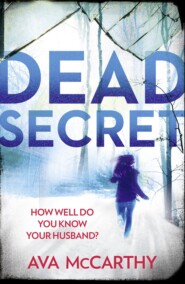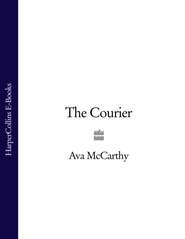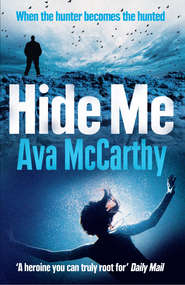По всем вопросам обращайтесь на: info@litportal.ru
(©) 2003-2024.
✖
The Insider
Настройки чтения
Размер шрифта
Высота строк
Поля
Harry listened, mesmerized. Limited. That described how she felt every minute of her day. Boxed in by her mother, who was always so disappointed in her; labelled at school where she failed to measure up. With a flash of insight, Harry realized he was telling her how to cope with her life.
Without warning, Dillon dropped her hands and sat back, as though suddenly embarrassed at his own intensity. ‘End of lecture. Thanks for talking to me.’ He jumped to his feet and headed for the door. ‘I’ll see myself out.’
Harry stood up, dizzy at the sudden change. ‘But wait – what happens now?’
Dillon shrugged. ‘Probably nothing. I’ll need to inform your parents about everything you’ve been doing, but no one’s going to prosecute a thirteen-year-old girl. Do it again though, and you’ll be in trouble.’
He stood with his hand on the doorknob and looked over at her, his eyes still slightly feverish. ‘Someday I’ll have my own company, with the best engineers in the country.’ His lips twitched, and he winked at her. ‘Stay out of jail long enough and maybe I’ll hire you.’
12 (#u3b73707e-90e5-5479-9343-230970466da0)
Cameron stood outside the wrought-iron gates. The girl was inside the house, and had been there for almost an hour. He pressed himself up against the bars. He badly needed to finish what he’d started.
He dug his fingernails into his palms. The train station had been such a fuck-up. She’d been so light, like a child. But the instant he’d broken contact with her, the mob of commuters had barged in front of him, blocking his view. He’d heard the shrieking trains, seen them crashing by. But the crowd had robbed him of the sight of her fear.
Without that, it wasn’t finished.
He peered through the gate. The driveway looked like a landing strip with all those fucking lights. He made out the shape of the house ahead, two lit windows glowing in the dark. He leaned his face against the cold metal and imagined the girl in one of those rooms. Heat filled his groin.
But he’d been told to back off.
He shook the railings, testing their strength. They stretched at least twelve feet into the air, welded on either side to a concrete wall that rolled away into the shadowy road. A pole-mounted surveillance camera rotated above him, panning its way down the driveway back towards the gate. Cameron ducked to one side, out of its line of sight. Houses like this were all the same. Prison walls, fence-mounted sensors, infra-red cameras. Maximum perimeter protection. For all the good it did them. There was always a way inside.
He began to circle the property wall, trailing his hand against the ivy that had stitched itself into the brickwork. He could smell the damp woodiness of the forest around him. Something rustled in the undergrowth, a small mammal on the move. Cameron reached a side gate and gazed again at the long L-shaped house. How spectacular it would look swallowed up in flames.
But he’d been told no fire. Not yet.
Not many people understood fire the way Cameron did. Mostly they were afraid of it. But Cameron had spent time getting close to flames, so close that he could almost touch their trembling colours and slender tongues.
He moved further along the wall, caressing the ivy leaves. Trapping someone in fire was so much more satisfying than shoving them in front of a truck. You got to stay in the shadows and watch the effects of what you’d done. Not like a road accident, where everything was over in a single scream. With fires, the build-up of euphoria was gradual, ending in a trance-like state that sated his need to see things burn.
He’d heard that many serial killers were fire-setters in their adolescence. Son of Sam, for instance. He’d started thousands of fires. Cameron smiled. He wasn’t in that league yet. One day, maybe.
He tried the latch on the side gate. It was locked, but the steel bars felt crumbly, the paint peeling away in his hands. He took a closer look. The gate was older and rustier than the other one, the welding not so secure. Cameron’s breathing quickened.
He might have been told to back off for a while, but that didn’t mean he couldn’t get close to her.
13 (#u3b73707e-90e5-5479-9343-230970466da0)
The wardrobe turned out to be a walk-in closet bigger than Harry’s own bedroom.
She padded over to the rail that ran the length of one wall and browsed through the hangers. The clothes seemed to come in a variety of sizes, but all bore the same designer labels and glitzy evening style. Harry sighed. With her bruised face and battered shoes, it wouldn’t be a good look.
She turned to rummage in the shelves behind her and found a pair of men’s jeans, a wide belt and some crisp white shirts still in their cellophane wrapping. A few minutes later she was dressed, the shirt tucked in and the belt cinched tight over the loose-fitting jeans. She made her way downstairs, wondering about the women who’d left their clothes behind.
Harry found the room at the back of the house where she had left Dillon, and pushed open the door. There was no sign of him.
She peered around the room and guessed this was where he did most of his living. It was a combination of office and bachelor’s den, and smelled of leather and grilled cheese. In front of the television was an oversized armchair complete with footrest and beer holder. Harry had a hard time picturing Dillon with his feet up watching TV.
Dominating one wall was a large black-and-white photograph, maybe five foot by four. It was a recent shot of Dillon, taken from an aerial viewpoint. He was sitting cross-legged on a deserted beach, and all around him were a series of lines and spirals traced in the sand. The pattern was Celtic in effect, and formed an ornate grid that took up half the beach.
‘It’s a simply connected maze.’
Harry spun round to find Dillon standing in the doorway watching her. He’d changed into smart chinos and a blue rugby shirt, and he carried a silver tray in his hands. He nodded towards the photograph as he moved into the room.
‘I used to carve them out everywhere I went. In the grass, in the snow. Once I even built one with mirrors.’
Harry turned back to the photograph. The confusing swirls reassembled themselves into paths and dead-ends, and she recognized it as the sort of maze she used to do as a child.
‘What does simply connected mean?’ she said.
‘Every path you choose leads either to another path or to a dead-end.’ The tray rattled as he set it down on the coffee table. ‘The paths never re-connect with one another, so it’s the simplest kind of maze to solve.’
Harry squinted at the maze and tried to follow one of its paths, but her eyes started to cross and she gave it up.
‘I never knew you were so hooked on mazes,’ she said.
‘Didn’t you ever wonder how I named my company?’
She threw him a questioning look.
‘Lúbra is the Irish for labyrinth,’ he said.
Harry smiled. ‘Nice.’
She eyed up the tray. He’d brought a bottle of brandy, two crystal balloon glasses and a plate piled high with sandwiches. Her stomach growled. She hadn’t eaten all day.
Helping herself to a sandwich, she sank into one of the chairs. Dillon handed her a brandy. He raised his eyebrows at the men’s shirt and jeans, but made no comment.
Harry slugged down a mouthful of brandy. ‘Look, I’m sorry about all that stuff with Ashford.’ She took a deep breath. ‘And I’m sorry about earlier, too. When I clammed up on you. I do that sometimes.’
Dillon busied himself with a sandwich. ‘That’s okay, you don’t have to tell me anything you don’t want to.’
Harry sighed. She may as well come right out with it. ‘It’s because of my father. I think he’s involved.’
Dillon frowned. ‘In what? The break-in?’
‘All of it.’
‘The guy at the train station as well? But that’s crazy. Why?’
‘Because of what that guy said. The Sorohan deal, the ring – it all points to my father.’
‘I don’t get it.’
She held his gaze. ‘The Sorohan deal was the one that blew up in my father’s face and got him arrested.’
Dillon’s expression cleared. ‘Oh. I see. But what –’








